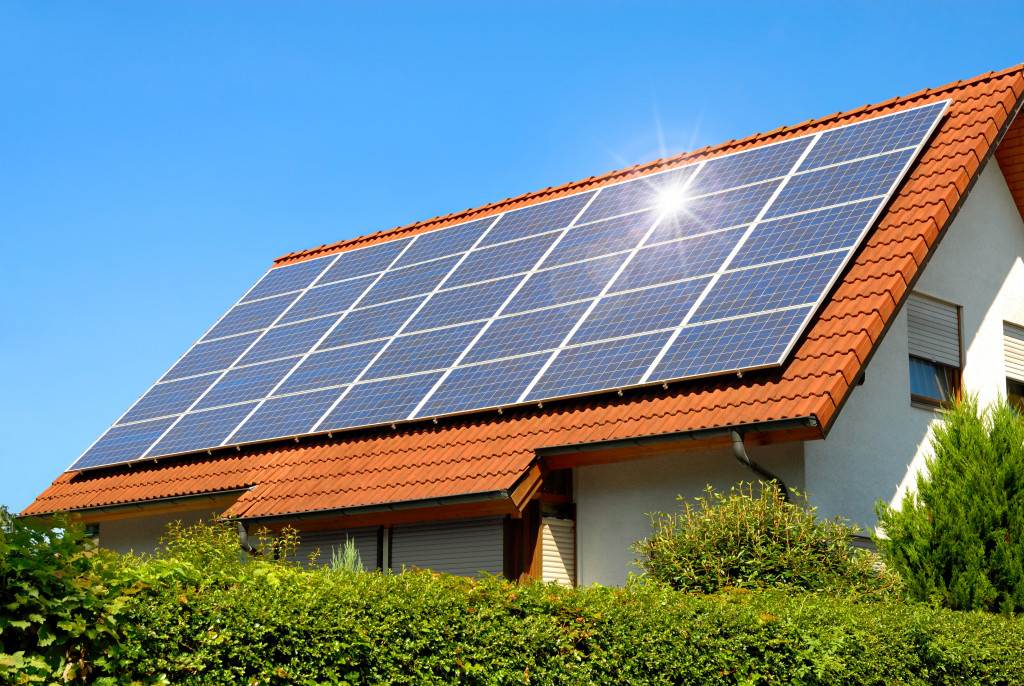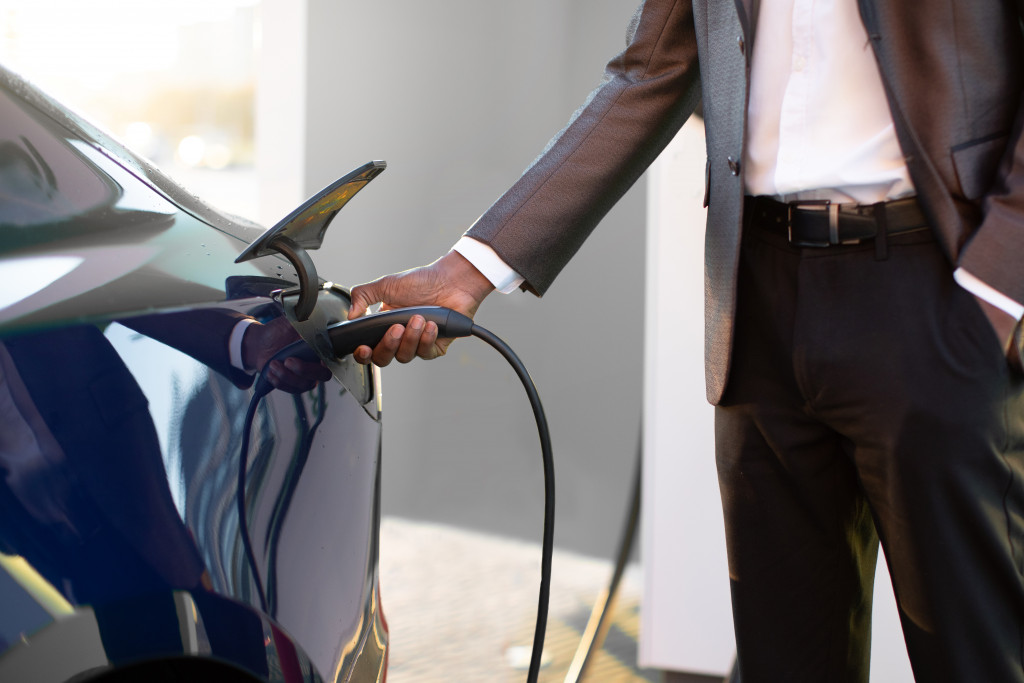- Switch to renewable energy sources like solar, wind, and geothermal to reduce your carbon footprint.
- Invest in electric vehicles (EVs) for zero emissions and fuel economy savings.
- Replace old appliances with energy-efficient models for reduced electricity use.
- Utilize solar energy and reduce water usage for more eco-friendly living.
- Install smart home devices to monitor and adjust settings based on usage habits.
Switching to an eco-friendly lifestyle is becoming increasingly important as climate change’s effects become apparent. Every day, humans create more and more waste, releasing toxic chemicals into the environment and depleting natural resources. Making simple changes can reduce your carbon footprint and help protect the planet for future generations.
Every effort, of course, must start from home. An Environmental Protection Agency (EPA) study found that households create over 25 percent of all greenhouse gases. To help reverse this trend, you should look at your home and identify areas where you can make eco-friendly changes.
Here are a few adjustments to consider for your lifestyle to reduce your carbon footprint:
Switching to Renewable Energy

Renewable energy is a great way to reduce your carbon footprint, as it does not require burning fossil fuels. Renewable energy sources like solar, wind, and geothermal have no emissions and are much cleaner than traditional ones. Solar power can generate electricity for an entire home without burning oil or coal. It also requires less land than other renewable energy sources, and some solar panels can be installed on structures such as rooftops. Additionally, installing solar panels can significantly reduce your electricity bill while providing clean power for years.
Wind turbines are another great source of clean energy that can provide enough power to run homes and even small businesses. Wind turbines capture the wind’s kinetic energy and convert it into electricity that can be used in various ways, including residential use. Furthermore, wind turbines are easy to install and maintain, making them ideal for eco-friendly living.
Finally, geothermal heat pumps extract heat from underground water or soil and heat or cool a building efficiently with little environmental impact. This type of renewable energy has been around since the early 1900s but is still vastly underutilized due to its costliness; however, newer models are more efficient and cost-effective than their predecessors. Geothermal also helps improve air quality by reducing air pollution caused by traditional heating systems such as wood stoves or furnaces that burn fossil fuels like propane and natural gas.
Preferring Electric Vehicles

Electric vehicles (EVs) are a great eco-friendly option for reducing their carbon footprint. EVs produce zero emissions, meaning they do not contribute to air pollution and are better for the environment than traditional gasoline-powered vehicles. Additionally, electric vehicles use energy from rechargeable batteries, which can be powered by renewable sources such as solar and wind power. This eliminates the need for non-renewable energy sources, such as fossil fuels. Furthermore, EV batteries have a much lower environmental impact than traditional car engines because they require fewer raw materials to create and produce significantly less waste at the end of their life cycle.
Electric vehicles also offer fuel savings over traditional gasoline-powered cars. On average, an electric vehicle can save around $1,000 per year compared to a gas-powered car in terms of fuel costs alone. Furthermore, EVs are more efficient in converting energy into motion, resulting in higher fuel economy than gasoline cars. Finally, EVs require less maintenance since there is no need for oil changes or other regular maintenance procedures associated with conventional vehicles. This means fewer trips to the mechanic and more money saved in the long run.
Of course, getting an electric vehicle means you will require a charging station at home. You can hire services for EV charger installation to ensure the job is done safely and correctly. Having the charger installed by a professional will also ensure that it meets local safety regulations and is correctly connected to your home’s power grid.
Making Minor Adjustments at Home
Making minor adjustments at home can significantly help you become more eco-friendly and reduce your carbon footprint. From replacing old appliances with energy-efficient models to utilizing solar energy, there are several ways to go green without drastically changing your lifestyle.
Replace Old Appliances with Energy Efficient Models
Replacing old appliances with energy-efficient models is essential for reducing your carbon footprint. Investing in modern, energy-efficient appliances such as washing machines, dishwashers, and refrigerators can reduce the electricity you use in your home and save money on your monthly bills. Energy-efficient models use less electricity than traditional ones and often come with features like timers that allow you to delay the start of a cycle until there is enough power available to complete it quickly.
Utilize Solar Energy
Solar power is becoming increasingly popular as an alternative renewable energy source due to its clean nature and cost savings potential. Solar panels absorb sunlight and convert it into electricity that can be used for various purposes, such as heating water or powering electrical devices like computers or lights. In addition to helping reduce greenhouse gas emissions, solar panels require no maintenance or upkeep once installed.
Reduce Water Usage
Water usage should also be reduced when trying to become more eco-friendly at home. Simple steps such as turning off the tap while brushing your teeth or taking shorter showers can reduce water consumption in your home. Fixing any leaking taps or toilets is essential for reducing water wastage and utility bills. Installing low-flow showerheads or faucets can also help conserve water while providing sufficient pressure for washing dishes or hands.
Install Smart Home Devices
Smart home devices are becoming increasingly popular among eco-conscious homeowners because they can automatically monitor and adjust settings based on usage habits without manually changing them whenever you do something new or different around the house. For example, smart thermostats can detect when people are either away from home or asleep and adjust temperatures accordingly so that less energy is wasted on keeping rooms at a constant temperature when nobody uses them for extended periods.
Final Thoughts
Going green is becoming increasingly important today, and making a few simple changes to your lifestyle can help reduce your carbon footprint. Start by switching to renewable energy sources like solar or wind turbines and investing in energy-efficient appliances. Other minor adjustments, such as reducing water usage and installing smart home devices, can also go a long way toward helping you become more eco-friendly. Taking these steps will help protect the planet for future generations while potentially saving you money in the long run.
